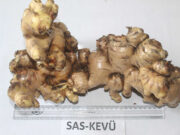Mumbai: A study examining health issues during the four-day Maratha Morcha in Mumbai revealed a significant surge in hospital visits, primarily for febrile illnesses, dehydration, and trauma. The findings highlight the importance of preparedness, dedicated triage systems, and rapid medical support during large public gatherings.
Scope and Duration of the Study
Conducted at a state medical college and hospital in South Mumbai, the study focused on the Maratha Rally held from August 29 to September 2, 2025. During this period, the tertiary-care hospital managed 249 protest-related patients 224 outpatients and 25 admissions—demonstrating the strain that large-scale political gatherings can place on urban healthcare systems.
Mass Gatherings and Public Health Risks
Mass gatherings whether religious, cultural, sporting, or political pose public health challenges due to crowding, limited facilities, and prolonged exposure. Such conditions increase the risk of infectious disease transmission, heat-related illness, trauma, and sudden hospital surges.
The Maratha Morcha, one of the largest political protests in recent years, drew thousands to Azad Maidan, where on-site medical camps treated over 2,300 cases, mostly viral fever, throat infections, and dehydration.
Clinical Profile of Patients
Participants presented with acute febrile illness, dehydration, trauma, pain, and fatigue, reflecting risks from crowding, prolonged outdoor exposure, overnight stays, and outdoor cooking.
One protestor was brought dead to the Emergency Department and referred to JJ Hospital for medicolegal post-mortem; however, no in-hospital mortality occurred.
Management was mainly supportive, though 68% of admitted patients left against medical advice within 24–48 hours.
Research Team and Methodology
The study was led by Dr. Jitendra Sankpal, Dean of Gokuldas Tejpal Hospital, and Dr. Sushrut Sankpal, Senior Resident in General Surgery, along with colleagues from Gokuldas Tejpal and JJ Hospitals.
Researchers analyzed clinical profiles, severity of cases, and challenges in managing sudden patient surges.
All patients were male, mostly aged 20–40 years, with nearly 60% from Beed and Parbhani, and others from Jalna, Nanded, Dharashiv, Hingoli, Solapur, Sambhaji Nagar, Latur, Pune, Nashik, and Washim.
Hospital Response and Resource Allocation
To streamline care, the hospital allocated a dedicated OPD and ward for protest-related cases, improving accessibility for participants unfamiliar with city healthcare systems. Researchers observed that Indian mass gathering preparedness guidelines largely focus on religious and cultural events, leaving political protests underrepresented.
Key Takeaways
This dataset, the first of its kind for the Maratha Morcha, underscores that political protests can trigger significant surges in hospital workload.
The study emphasizes the need for rapid triage, dedicated wards, mobile health support, and surge-capacity planning to manage health risks during large-scale gatherings and to strengthen urban hospital preparedness.

















































